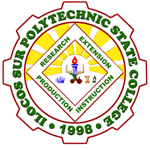This course provides an overview of the computing profession, including research and applications in different fields: an appreciation of computing in various fields like medicine, environment, gaming, etc.; an appreciation of history computer hardware and software, computer network, computer security and the internet.
This course deals with nature of mathematics, appreciation of its practical, and application of mathematical tools in daily life.
The course begins with an introduction to the nature of mathematics as an exploration of patterns (in nature and the environment) and as an application of inductive reasoning. By exploring these topics, student are encouraged to go beyond the typical understanding of mathematics as merely a set of formulas
This course deals with the nature of identity, as well as the factors and forces that affect the development and maintenance of personal identity.
This course emphasizes that life on earth as we know it is an integrated and interdependent whole; its future is endangered by the impact of human development on natural resources; its survival for future generations will depend on concerted action to conserve and manage the environment as a self-sustaining resource base.
The Entrepreneurial Mind course is designed to foster an entrepreneurial mindset and equip students with the knowledge and skills necessary for success in entrepreneurial ventures. Through a combination of theory, case studies, and experiential learning, students explore key aspects of entrepreneurship such as opportunity recognition, market analysis, business planning, and leadership. They develop critical thinking, problem-solving, and creativity skills while gaining insights into the challenges and opportunities of entrepreneurship. By the end of the course, students are prepared to identify and evaluate business opportunities, create innovative business models, and navigate the complexities of starting and managing their own ventures.
The Fundamentals of Physical Fitness course provides students with a comprehensive understanding of the principles and components essential for developing and maintaining physical fitness. Through a combination of theoretical knowledge and practical applications, students learn about the importance of cardiovascular endurance, muscular strength and endurance, flexibility, and body composition. The course covers topics such as exercise physiology, nutrition, exercise techniques, and proper training principles. Students engage in physical activities, fitness assessments, and goal setting to develop personalized fitness plans. By the end of the course, students gain the knowledge and skills necessary to lead a healthy and active lifestyle while effectively managing their physical fitness and overall well-being.
The Civic Welfare Training Services (CWTS) as a component of the National Service Training Program (NSTP) is a course for first year students both male and female designed to help them understand, appreciate an eventually live by the basic concepts of the student’s transformation and enrichment for truth (STET) with the end in view of empowering them in becoming a potent resource for community development.
